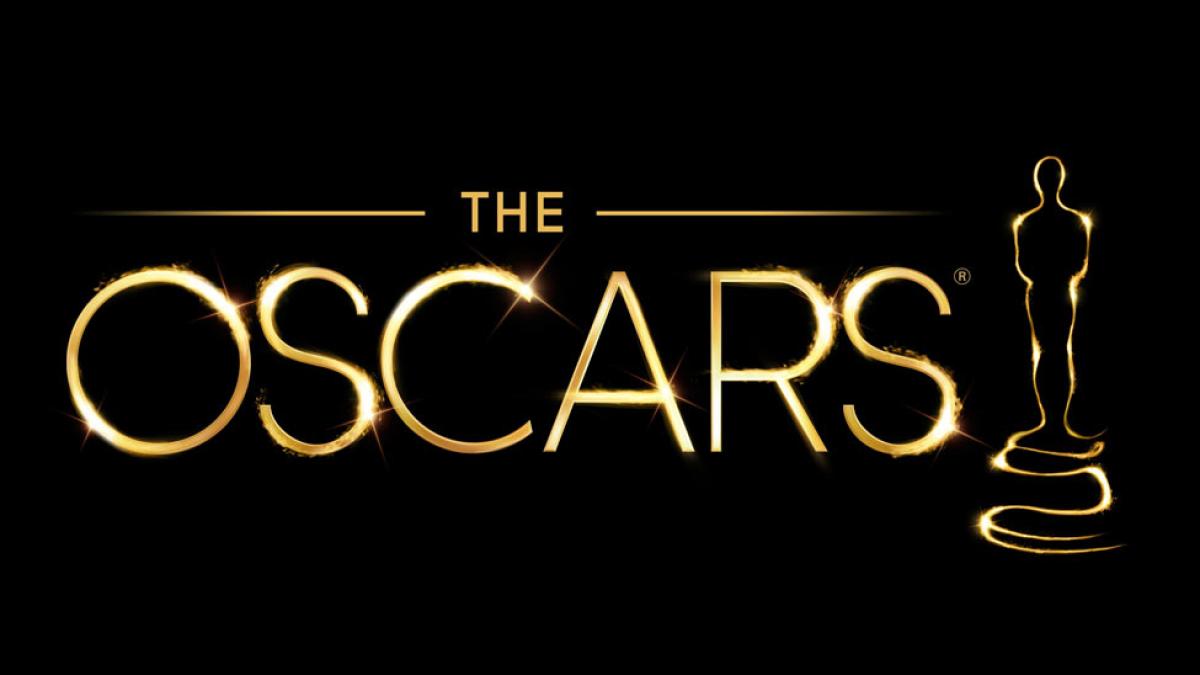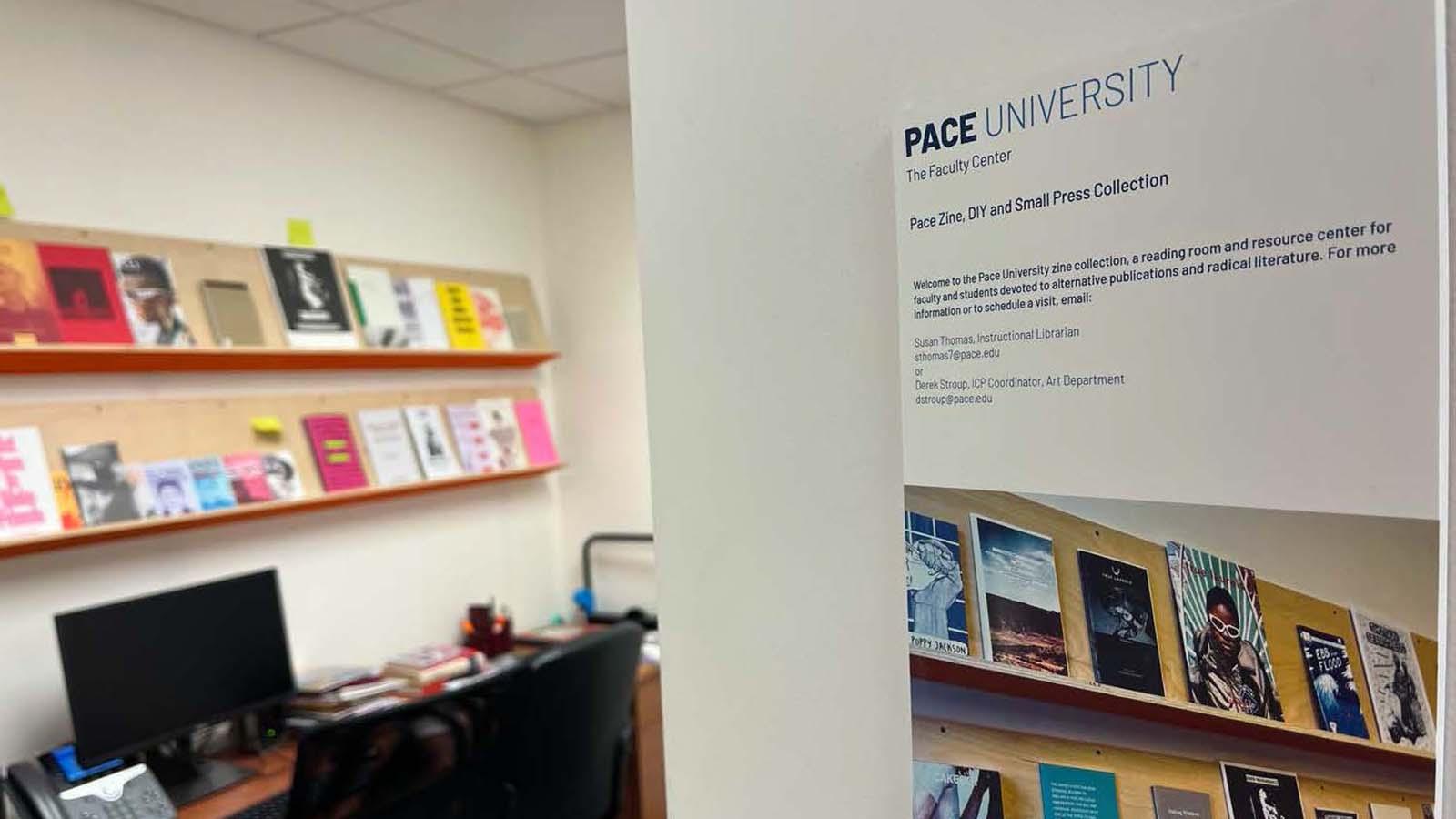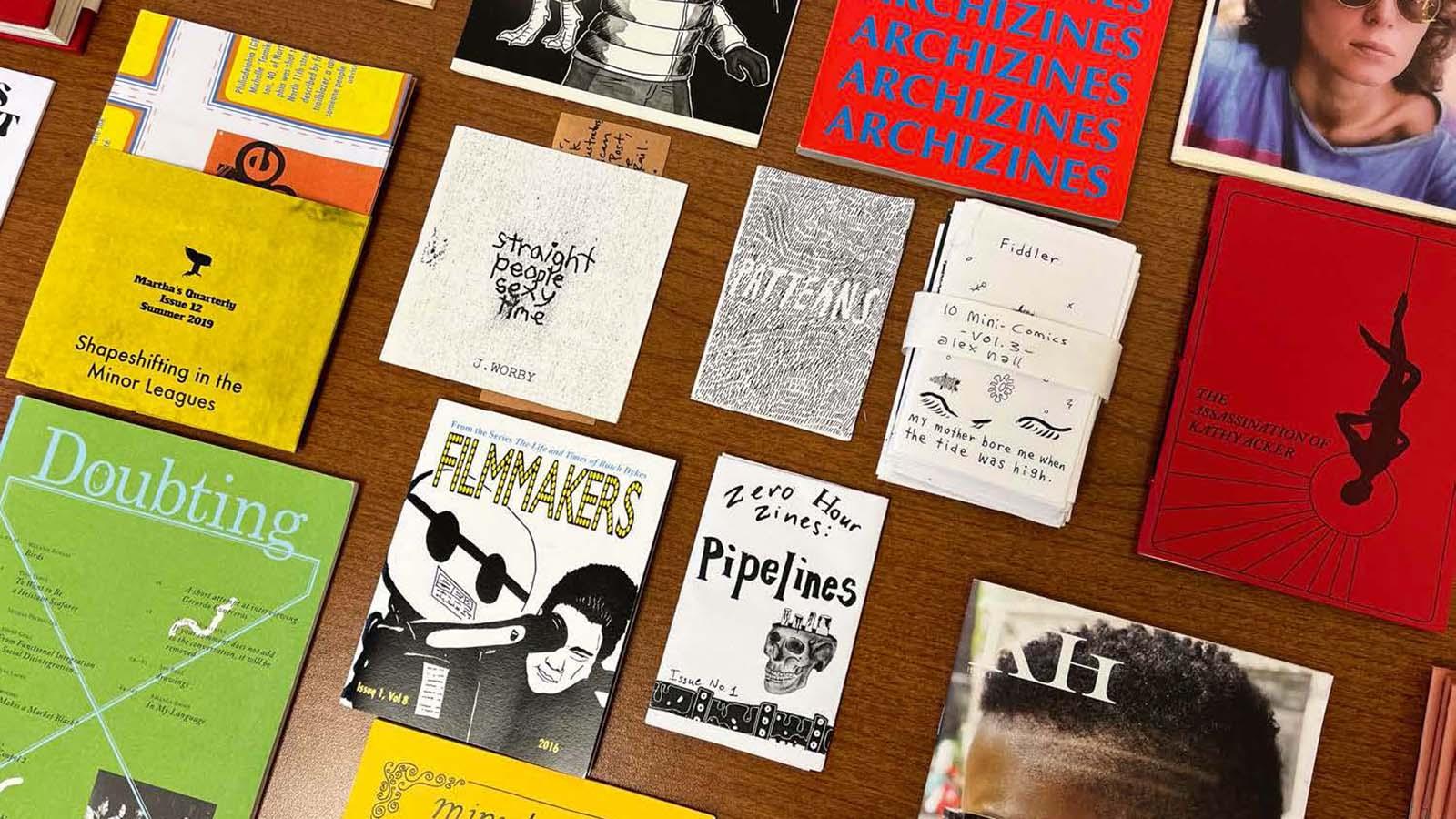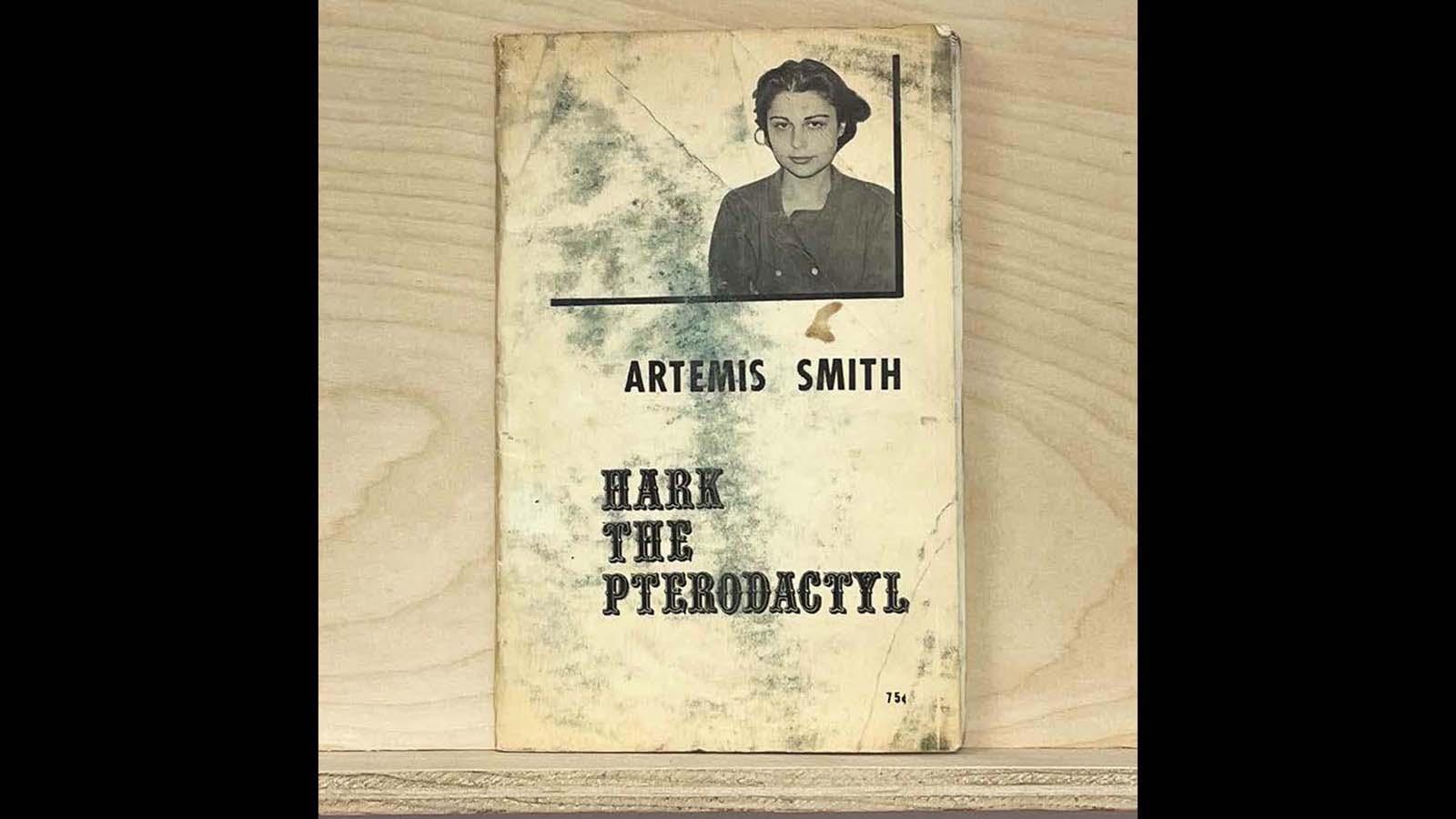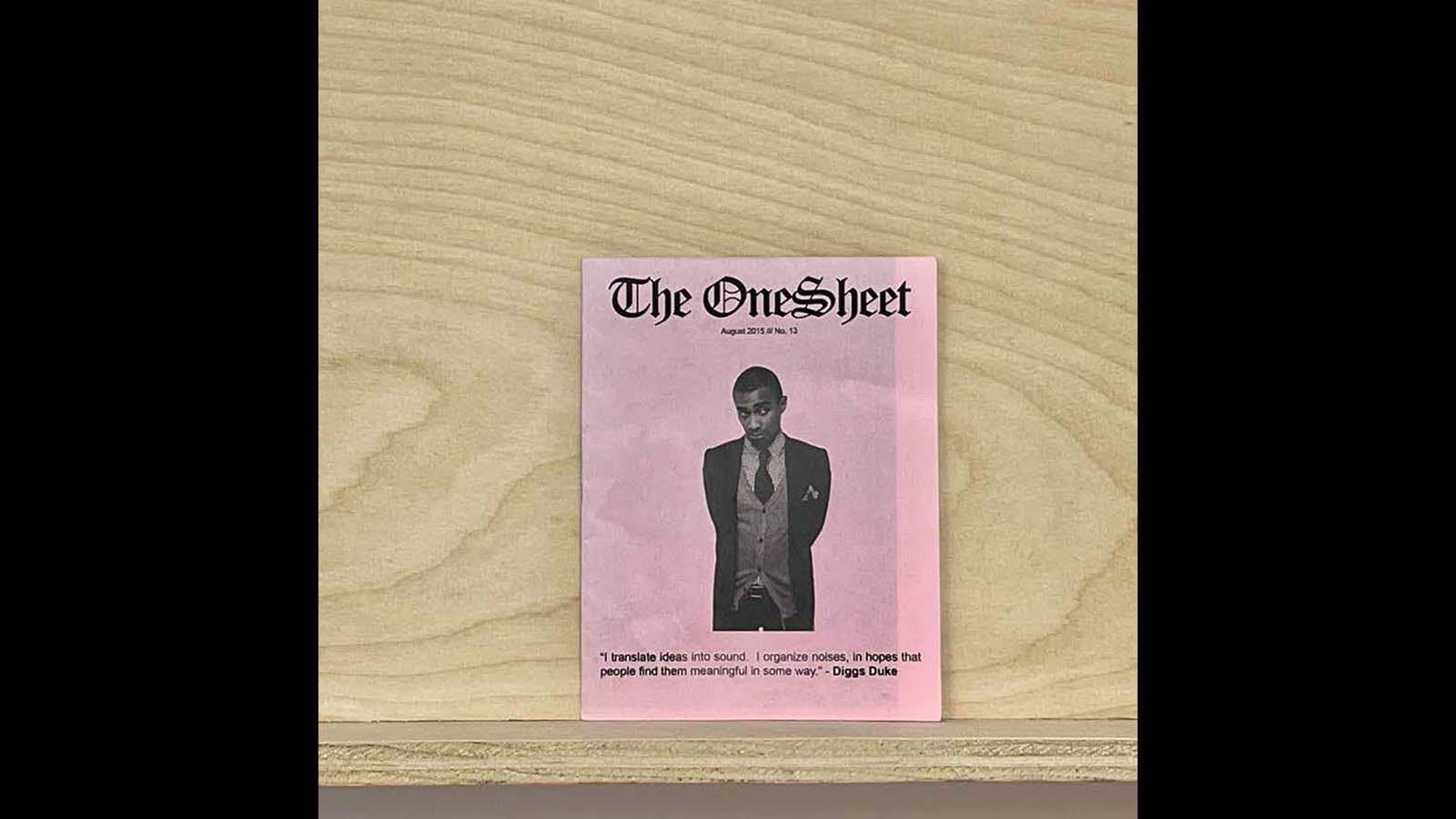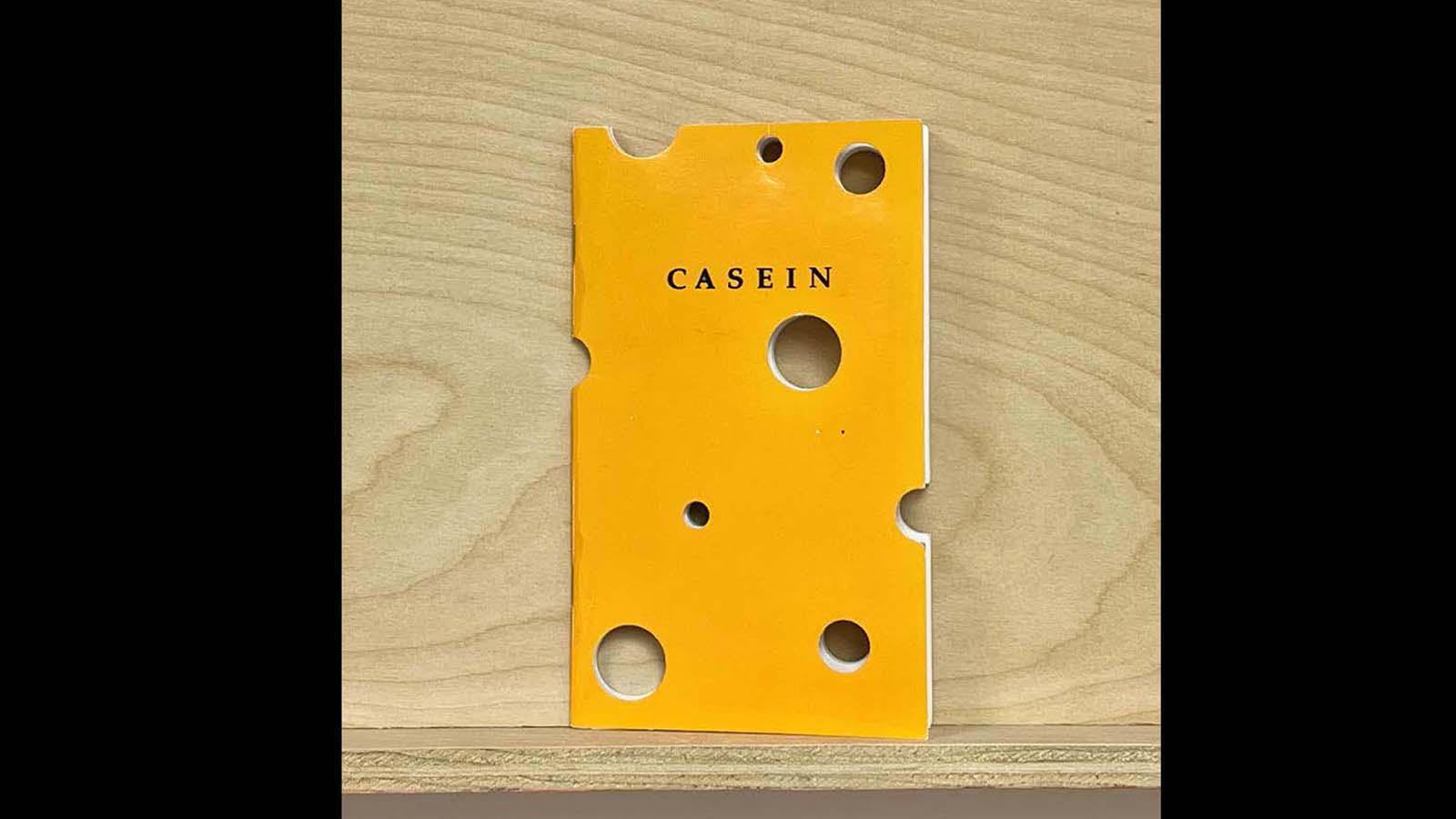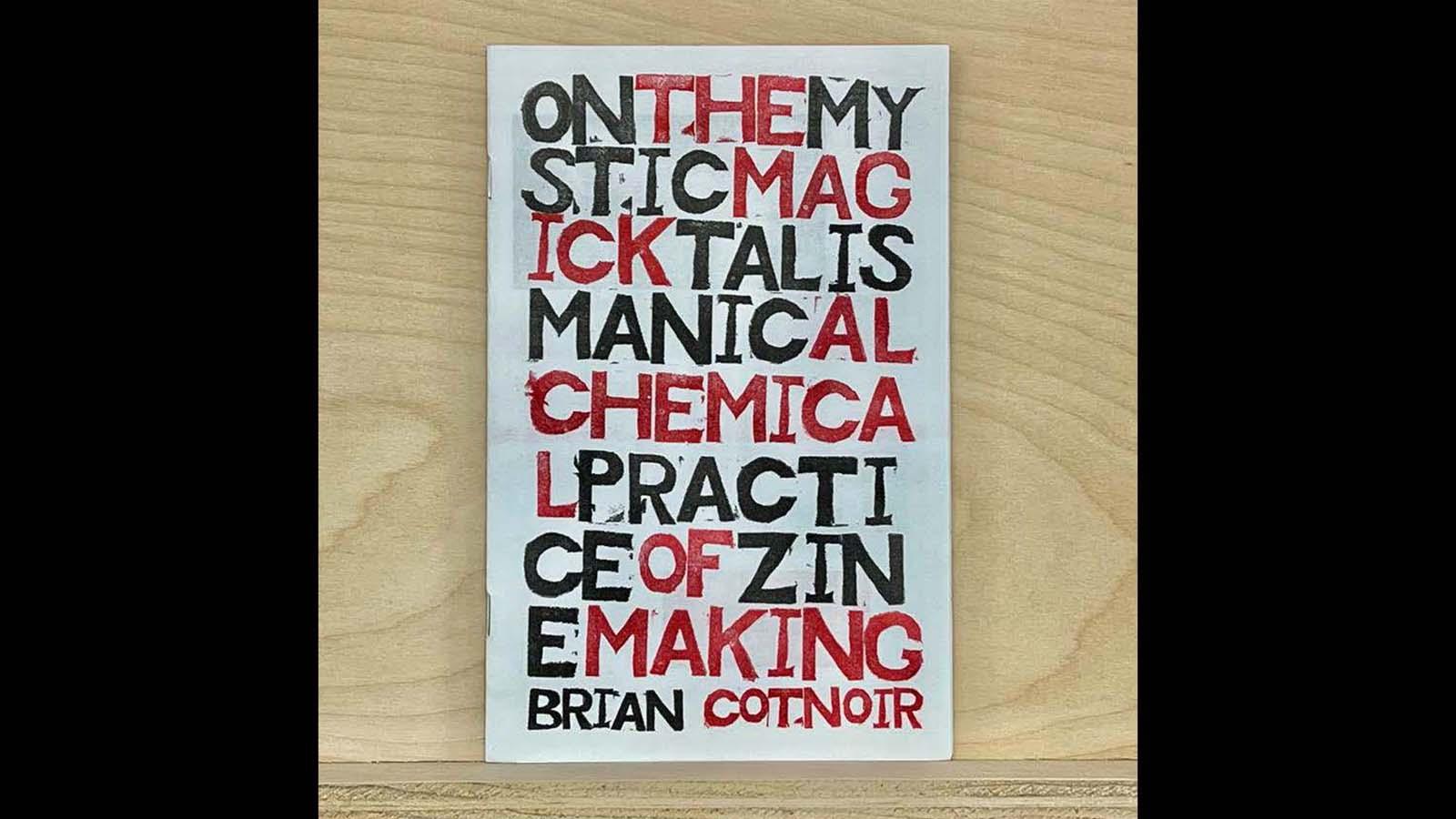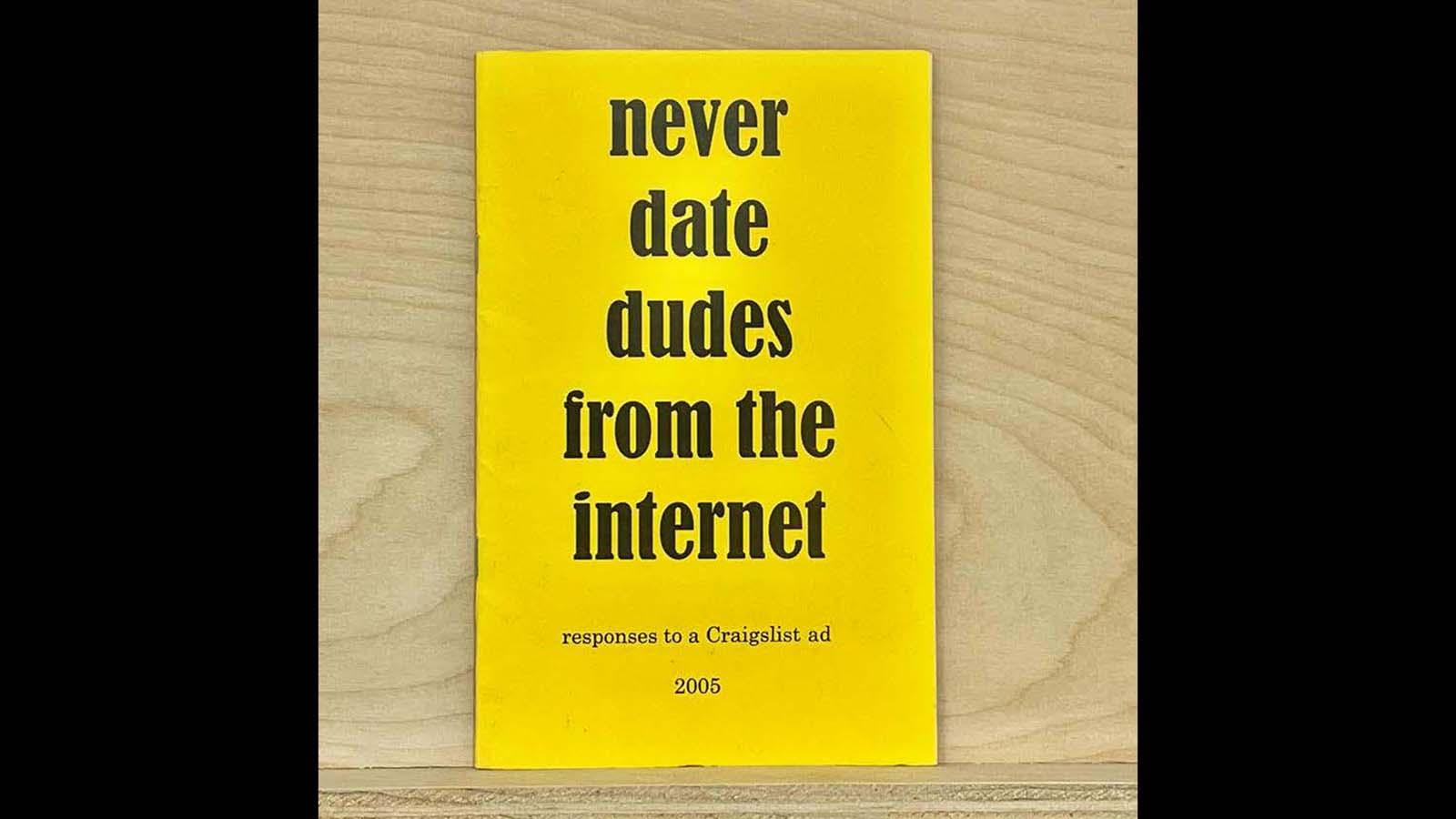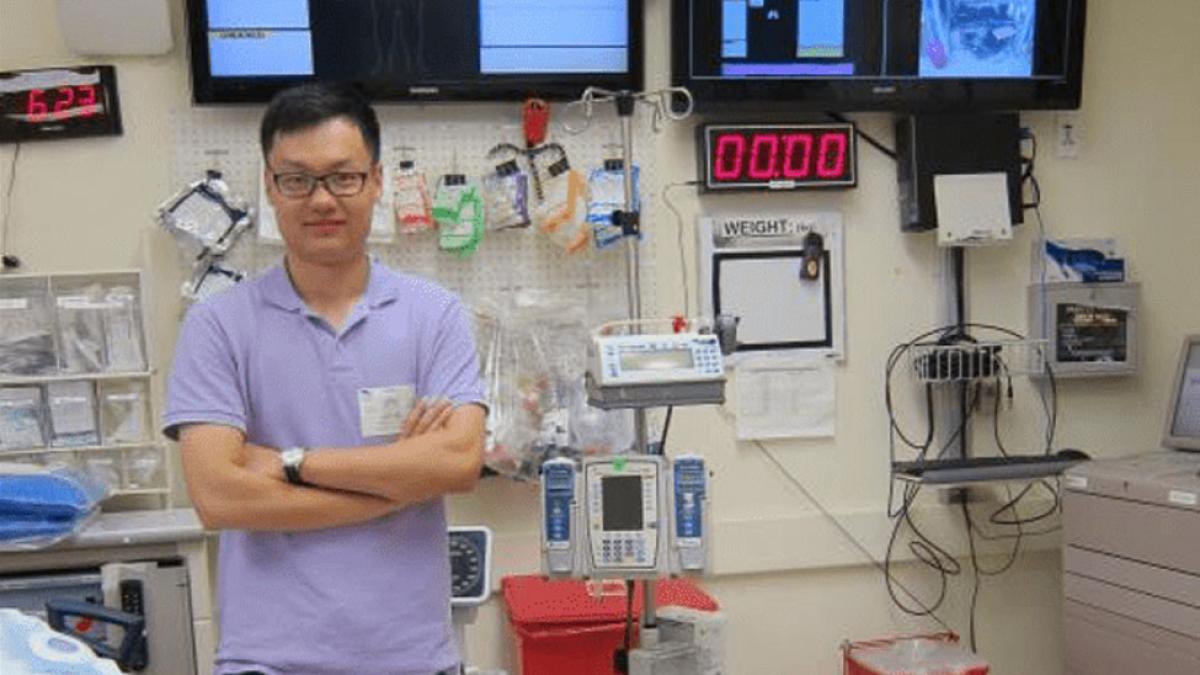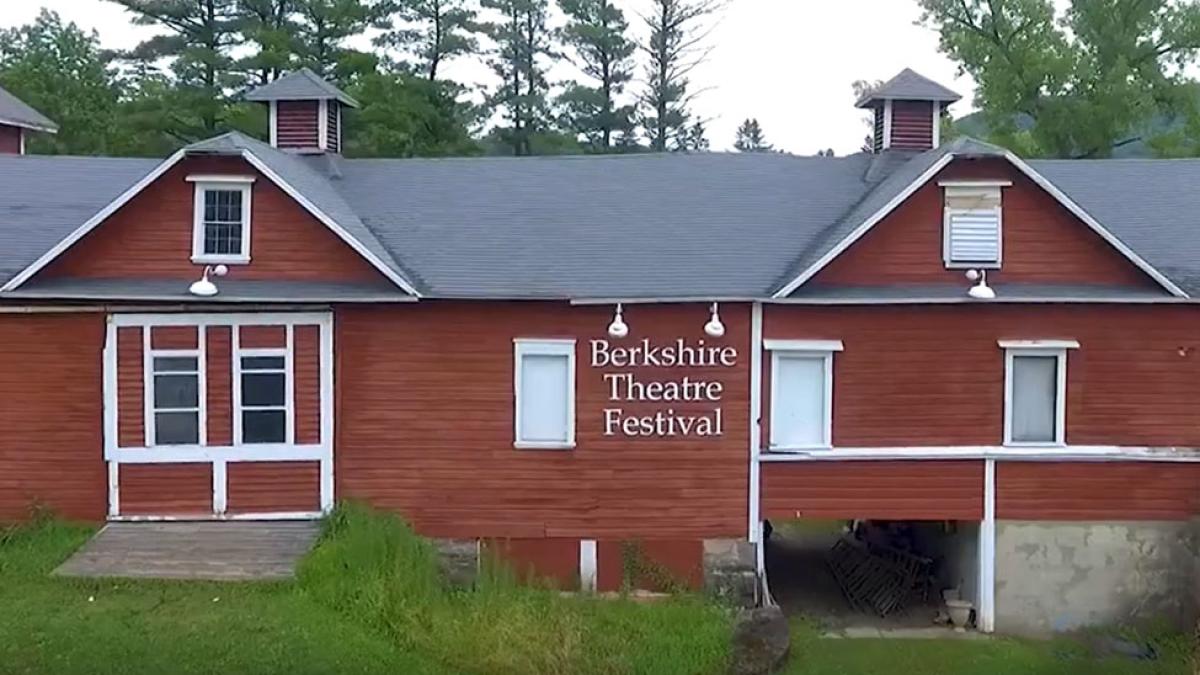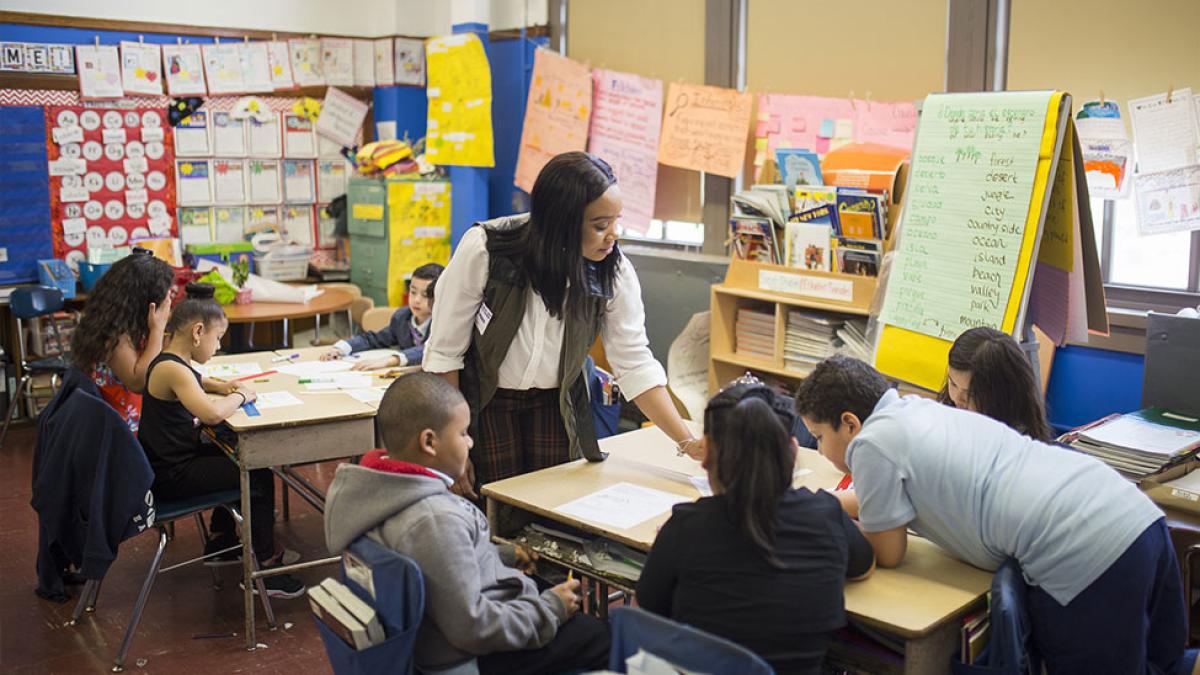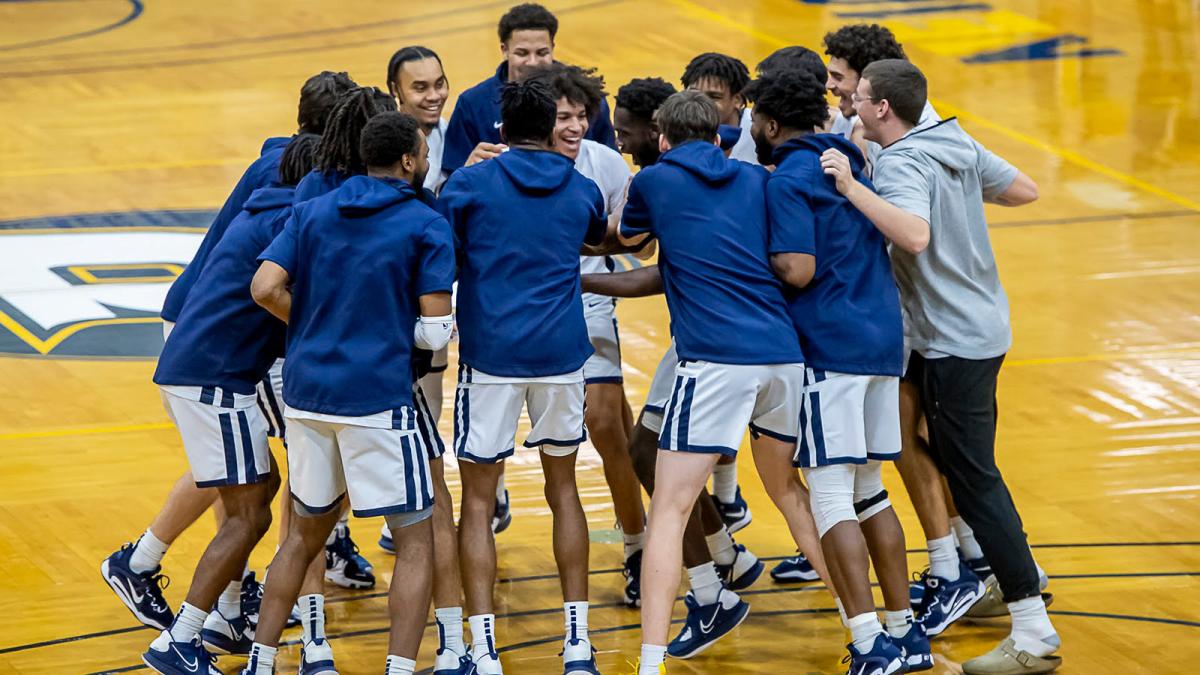
Dean Anderson shares his experience and insights in this WCBA Member Spotlight
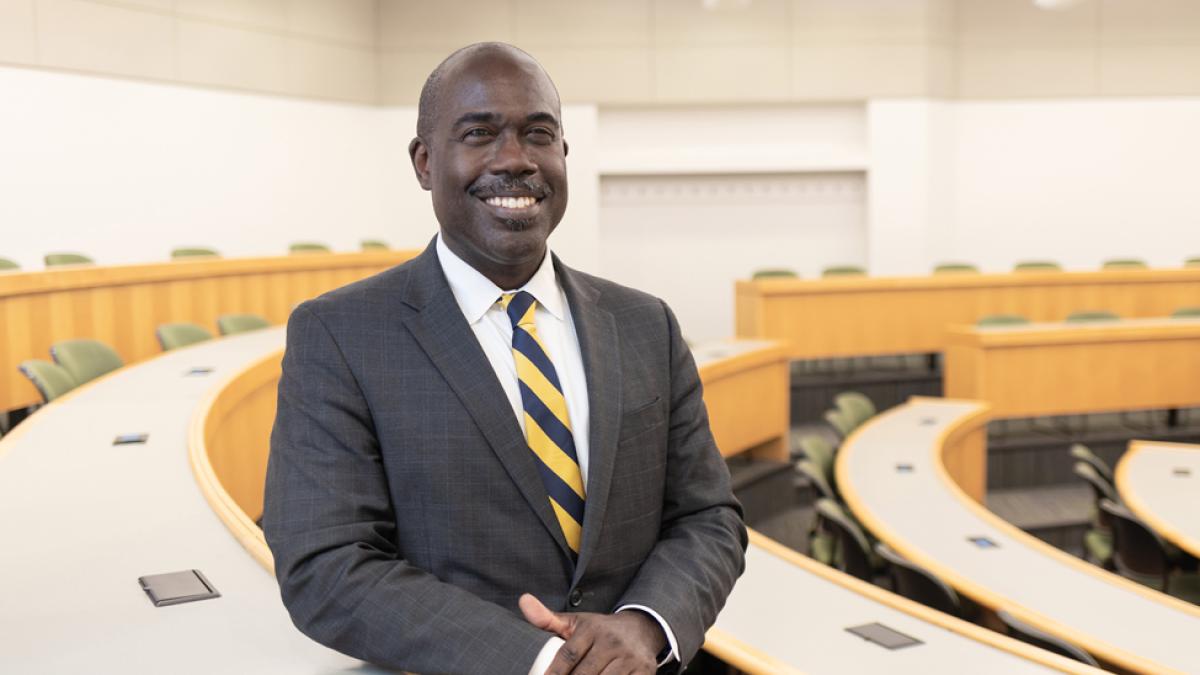
Pace Men’s Basketball Returns To NCAA Championship
The Madness of March returns to Pace University once again: For the first time in school history the Pace University Men's Basketball team earns back-to-back NCAA championship berths as the Setters heard their name called in Sunday night's Selection Show on NCAA.com. Pace received the No. 5 seed in the East Region and will face No. 4 seed and fellow Northeast-10 Conference foe University of New Haven.
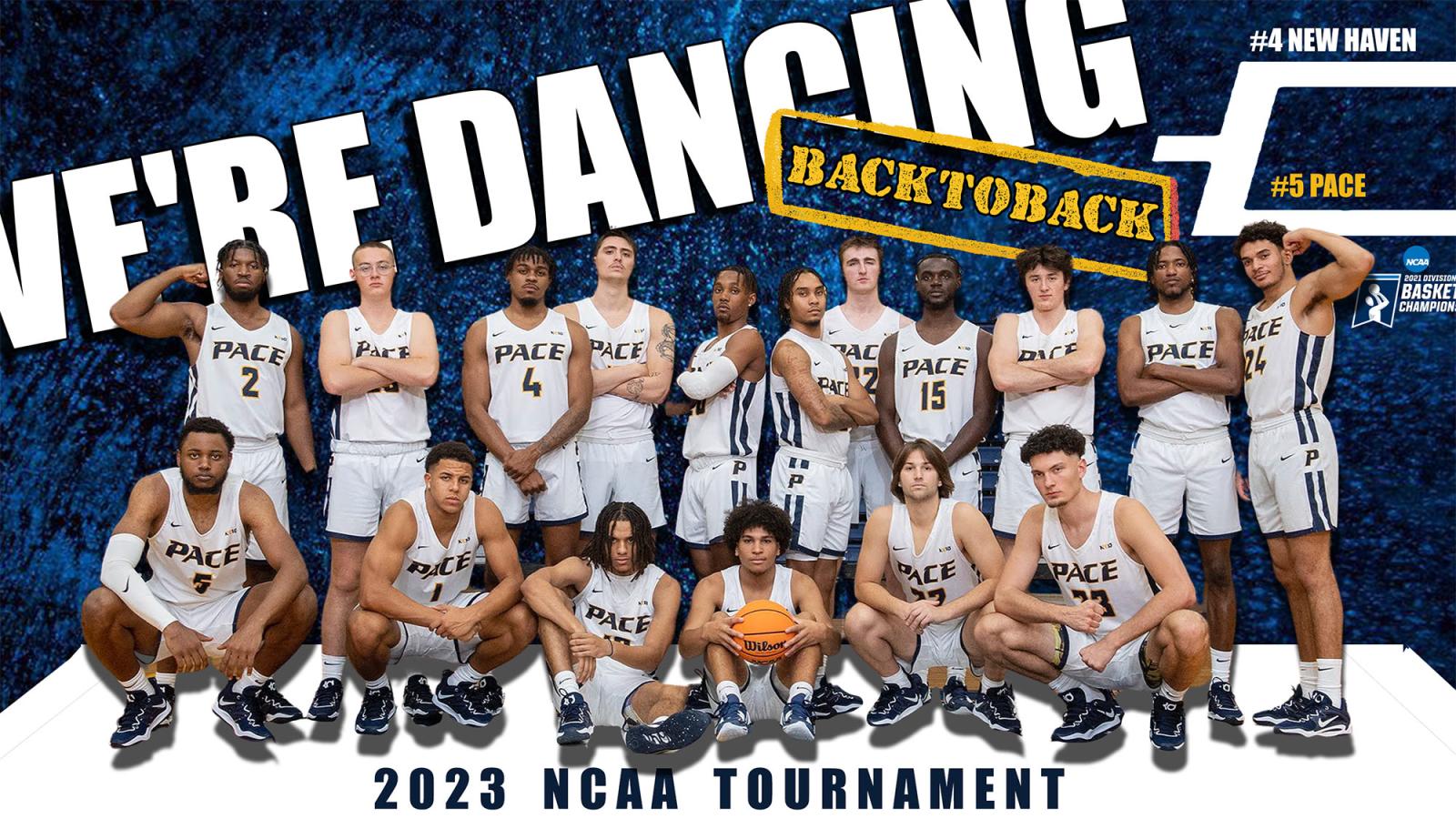
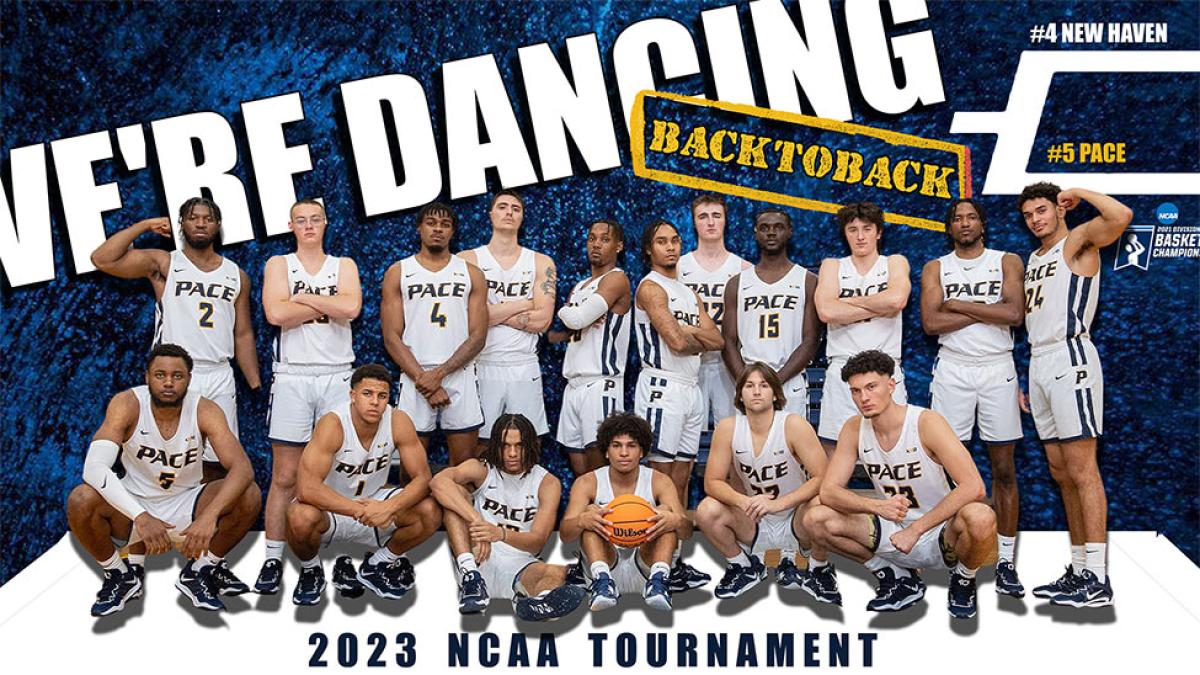
The Pace University Men’s Basketball Team earned an at-large berth to the NCAA Championship for the second-straight year.
The Madness of March returns to Pace University once again: For the first time in school history the Pace University Men's Basketball team earns back-to-back NCAA championship berths as the Setters heard their name called in Sunday night's Selection Show on NCAA.com. Pace received the No. 5 seed in the East Region and will face No. 4 seed and fellow Northeast-10 Conference foe University of New Haven.
The first-round games will be played on Saturday, March 11 at Saint Anselm, the No. 1 seed in the East Region. Game time between the Pace and New Haven is set for 7:30 p.m. Fans can watch the game live.
The Setters (20-10) and Chargers (20-8) met once this season with New Haven besting Pace by just six points, 56-50, on January 21 in New Haven, Conn. New Haven was runner-up in the NE10 Championship.

Head coach Matt Healing and the Setters have had another tremendous season, earning 20-plus wins for the second consecutive year. Healing's squads have boasted winning records in the last four seasons. The last time Pace recorded back-to-back 20-win seasons was 1989-1992.
Pace ranked second in the NE10 in field goal percentage defense (40.4) which ranked 18th nationally. In scoring defense, the Setters ranked 26th nationally (65.5), third in the NE10. The Blue and Gold finished seventh in the NE10 with an 11-9 record. In the conference championships, the Setters defeated No. 10 seed Adelphi, 72-51; but lost on the road at No. 2 seed Saint Anselm, 78-70.
The Pace men's basketball program has appeared in the NCAA championship just five times prior: 1992, 1999, 2002, 2007 and 2022.
Last season, the Setters earned the fifth seed in the East Regional and defeated fourth-seeded Dominican 77-64. It was the first NCAA win since 2002.
With a win on Saturday, Pace will advance to the NCAA Regional Semifinals which is slated for 7:30 p.m. on Sunday, March 12. A win in the semifinals will send the Setters to the regional championship, set for 7:00 p.m. on Tuesday, March 14.
Click here for all the NCAA Regional Information.
About Pace University Athletics
Pace University Athletics is a member of NCAA Division II, competing within the Northeast-10 Conference (NE10). Pace Athletics sponsors 15 intercollegiate sports, along with cheer and dance teams and a Pep Band. Known as the Setters, Pace’s official mascot is known as T-Bone. In 2021-22, Pace student-athletes posted a cumulative grade point average of 3.33. Additionally, a total of 562 Setters were selected to the NE10’s Academic Honor Roll with 69 student-athletes earning Academic Excellence with 4.0 semester GPAs. Twenty two student-athletes earned NE10 President’s Award for Academic Excellence, recognizing graduating student-athletes who have attained Magna Cum Laude at their institution, have participated in at least two seasons of NE10 competition and are current student-athletes at the time of graduation.
Teaching Outside the Box with Outsider Publications
Pace’s best kept secret is also New York’s smallest library. Pace’s Zine Library is under 100 square feet but what it lacks in size it makes up for in unique literary sources, student-created research, and pedagogical resources for faculty looking to change things up in the classroom.


One of New York City’s smallest libraries can be found right here at Pace.
Clocking in at 97.92 square feet, Pace’s Zine library at 161 William Street is a reminder of how even the smallest things can have a big impact.
Instructional Services Librarian at Birnbaum Library Susan Thomas and Associate Professor Kelley Kreitz co-founded the library, and they both recently spoke passionately of the power of zines at a workshop sponsored by the Faculty Center. The workshop, Teaching and Learning with Zines Across the Disciplines, opened with a presentation by co-director Professor Derek Stroup in which he explained the unique elements at play when working with zines, accompanied by photos of some of the libraries’ eclectic offerings.
Stroup’s introduction reveals an eclectic variety of pieces. At Pace’s Zine library, you can find acclaimed historical zines from the 1970s next to zines created by students. Full-color magazines with huge budgets sit on the shelf next to flimsy, photocopied zines originally given out for free on the subway. This kind of variety presented on equal ground can spark conversations about where good art comes from, and who creates it. With a lower barrier to entry than traditional publishing, authors with smaller (or virtually no) budgets can share their perspective and create their own unique work using zines.
We are on the outside, we are in the underneath of publication.
—Derek Stroup
“We are on the outside, we are in the underneath of publication,” Stroup said. Many of these zines are unique and cannot be found for elsewhere—not even on Amazon.
But Pace’s Zine Library isn’t just an interesting curiosity. This particular workshop was sponsored by the Faculty Center, so much of the time was dedicated to exploring how faculty can best utilize the library. Many faculty, including Professor Steve Bookman, have brought their classes to the library, included zines in course materials, and even assigned zines as projects. According to him, students are big fans. “The multi-media aspect the students love because they don’t see it as an essay. It is an essay, but it’s more fun and creative for them,” said Bookman. “They have to be able to put something into fewer words which is something they are going to take into the real world.”
"We work together to provide this exciting, unique resource for the students."
—Susan Thomas
“Students play an important role, too,” says Thomas. “They select zines and related publications for the collection; donate their own zines; intern on a collaboration between the Zine Library and the Pace University Art Gallery and the Chinatown Art Brigade exhibition; and volunteer in the Zine Library as student catalogers.” Their contributions are made possible by the collaboration between Pace librarians and faculty, who work together to explore how zines and zine pedagogy can be utilized in the classroom. According to Thomas, "We work together to provide this exciting, unique resource for the students."
With a wide variety of topics—from sexuality and gender to racial justice; visual arts to history; skateboarding, nutrition, punk music, and more—zines can be utilized as primary texts across many disciplines to explore course content. Faculty trying to reinvent how their own material is taught and learned can utilize pedagogy resources that explain how to create their own zines or find zine lesson plans. And for faculty who don’t feel the course materials are represented in the library, the library wants to hear from you. Early collaborator to the library and zine-enthusiast Associate Professor Kelley Kreitz, PhD, recommended during the workshop, “We can use faculty needs to direct where the collection goes to some degree.”
It puts the idea of publishing and authorship within reach.
—Derek Stroup
For students who have big ideas but limited resources, zines create opportunity. “A student can’t create a book on economic change in Manhattan in a semester. But here’s something within reach, they can probably create an eight-page zine,” Stroup explained. “It puts the idea of publishing and authorship within reach.” Whether a zine is created for a school project or for extracurricular interests and passions, zines can empower students to become published authors and get real-world experience expressing their ideas and research.
Whether you want to use the zines as primary texts, task students with creating their zines for research projects, or use resources to create zines of your own, Pace’s Zine Library is ready to support Pace Community members in the ever-forward push for innovating the way students learn.
Access and browse the Zine Library Collection online. To plan a visit or learn more, visit Pace’s Zine Library website.
Images of Pace's Zine Library
Pace University’s Newly Launched Entrepreneurship Studio Onboards Promising Startups
- Read more about Pace University’s Newly Launched Entrepreneurship Studio Onboards Promising Startups
Pace University’s Lubin School of Business, in collaboration with AnD Ventures, recently launched the Pace Entrepreneurship Studio (PES) with the mission to support Pace students, faculty, staff and alumni in taking their compelling business ideas or ventures from concept to company.

Pace University’s Lubin School of Business, in collaboration with AnD Ventures, recently launched the Pace Entrepreneurship Studio (PES) with the mission to support Pace students, faculty, staff and alumni in taking their compelling business ideas or ventures from concept to company.
PES will position the University as a leading institution for cultivating entrepreneurship and innovation in the tri-state area.
“For more than a century, Pace and the Lubin School have been at the forefront of business education,” said Pace President Marvin Krislov. “Today, the Pace Entrepreneurship Studio is a unique and cutting-edge opportunity for ambitious and innovative Pace students to gain access to some of the best minds in business and tech. I couldn’t be happier that three student-led projects are already well on their way to success.”
AnD Ventures, an Israeli venture capital firm, has collaborated with Pace on this exciting endeavor to teach the "how" and to support the "what" of providing students, faculty, and alumni with a complete blueprint for establishing successful businesses.
Presently, three startups have been selected from a pool of twenty-three to undergo PES’ “Studio Process,” which entails passing a due diligence review with AnD Ventures’ investment team and key experts from a variety of sectors. During the due diligence process the PES team identifies the main challenges for each company and develops a tailor-made roadmap for accelerating its growth. Each startup has its own process and key performance indicators for the purpose of raising funds and developing a strategy for international expansion.
“With equal amounts of fascination and pride, I am excited that PES is serving as a launchpad and support infrastructure for business ideas and ventures created by members of our community,” said Lawrence G. Singleton, dean of the Lubin School of Business. “Fostering and cultivating an entrepreneurial spirit in our students is one of Lubin’s strengths. Pace’s contribution to the entrepreneurial ecosystem positions the university to nurture the growth of businesses providing solutions to a variety of challenges consumers are experiencing today.”
The onboarded startups are:
- Cloudonix: Launched by Eric Klein ’90, ’97, co-founder and COO, and Nir Simionovich, Cloudonix revolutionizes enterprise communications with a software defined communications platform. Companies can streamline their operations and enhance customer service by integrating voice and data for a comprehensive service experience. To date, Cloudonix has generated nearly $4 million in revenue and the company’s customer base includes leading corporations around the world.
- Gamr: Gamr has produced the leading app for eSports players and is building a one-stop platform for gamers. The company, which has a significant number of achievements under its belt, has been nominated as one of the Top 100 eSports Startups to Watch in the world. Gamr’s founders are Seyi Fakoya ’23, Eniola Edun, and Kunmi Adenipebi. Their platform facilitates hosting and participating in online competitions and allows players from all over Africa to participate in large-scale tournaments. Gamr offers a unique product in the African market and PES will assist them with raising funds and scaling.
- Invest-ed: A young and ambitious company founded by Andrew Wong ’26, Invest-ed wishes to change the way Gen Z invests their money. With short videos and simple instructions, customers learn how to invest in different stock markets. The Invest-ed app will launch soon with special access being extended to Pace students.
These three startups are already in the marketplace providing goods and services and delivering results. PES is providing guidance and resources so that these successful ventures may build even more momentum.
With an aptly-fitting name reflective of the ambition, drive, and grit embodied by members of the community, Pace “Go-Getters” with compelling business ideas or startups are encouraged to apply to the PES program. PES is the university’s motto of Opportunitas at work!
About Pace University
Pace University has a proud history of preparing its diverse student body for a lifetime of professional success because of its unique programs that combine immersive academics and real-world experiences. Pace is ranked the #1 private, four-year college in the nation for upward economic mobility by Harvard University’s Opportunity Insights, evidence of the transformative education the University provides.
About the Lubin School of Business at Pace University
Globally recognized and prestigiously accredited, the Lubin School of Business integrates New York City’s business world into the experienced-based education of its students at Pace’s suburban and downtown campuses, implemented by one of the region’s largest co-op programs, team-based learning, and customized career guidance. Its programs are designed to launch success-oriented graduates toward upwardly mobile careers.
About the Entrepreneurship Studio at Pace University
Located at Pace University, the Pace Entrepreneurship Studio (PES) elevates promising entrepreneurs with the assistance of international leaders and professionals. PES supports new startups, from ideation to funding—from conception to operation, with the mission to teach the "how" and to support the "what"—providing students, faculty, and alumni with a complete blueprint for establishing successful businesses.
About AnD Ventures
AnD Ventures is an Israeli venture capital firm that invests in pioneering early-stage startups and builds them into companies that make a difference. The team consists of founders, sophisticated investors, corporates, and VCs. Together, they work in concert with experts from Fortune 500 companies, serial entrepreneurs, innovators, and experts across a vast array of industries and experiences.
Experiential Education, from India to NYC
“I’ve become the person that I am today because I came to New York City and Pace University.” International student Chinmay Bonde reflects on how his pro bono work with nonprofits in India, his professors at Pace, and his time in New York City have given him well-rounded, real-world education in his field.


Chinmay Bonde ’23 already had a wealth of marketing knowledge before he left India to pursue an MS degree in marketing analytics as a Pace graduate student. But before he arrived in New York City, he gained experience that shifted the way he thought about how companies did business and emphasized the importance of building his own skills.
While still in India, Chinmay worked for California-based IT company Cloudalyze. During the pandemic, Chinmay’s company asked that employees donate one percent of their work hours towards voluntary work for nonprofits. “Organizations that donated their expertise to nonprofits could earn the Impact Partner certification, which is the highest tier of the Salesforce platform in the nonprofit industry,” he explained.
His experience in system development, graphic design, and customer success came together as he worked with nonprofits across different industries—from healthcare, education, energy, and beyond. Throughout his pro bono work, he felt there were three major takeaways. “First, my organization received a high achievement tier within Salesforce, which is huge because everyone uses Salesforces,” he explains. “Second, it was a bonus for me on a personal level by enhancing my skillset, and it’s great to have the experience on my resume. And the third thing is that the nonprofits were able to save a lot of money and time they would have had to invest in a paid consulting firm if we hadn’t stepped in.”
I found really amazing professors at Pace with such great experience.
Chinmay estimated the pro bono work he did saved nearly $100,000 for nonprofits during a difficult financial time. “Many were so impressed and so happy with the work done, they were ready to pay us back and enroll in full-time support,” Chinmay says. His company even created new cost-effective support plans specifically aimed at nonprofits as a result of their work together. To sum it up, “Everybody wins.”
Now, Chinmay is further expanding his skill toolbox at Pace as a graduate student. When he was choosing schools in the US, he focused his research on faculty, looking for professors who had industry experience that resonated with the work he wanted to do. “I found really amazing professors at Pace with such great experience,” he says. “I’m on my last semester and my marketing knowledge and skills have really been enhanced to a level it wouldn’t have otherwise, especially because of those amazing professors.”
I have become the boss of my own life just by living over here, and Pace University is the reason I have been able to achieve all of that.
Chinmay prides himself on his market research, and he noticed something especially interesting about Pace. “I looked at nearly sixty colleges before I made my decisions and had a few offer letters.” According to him, “Pace seemed to be the only college program with a STEM-designated MS in social media and mobile marketing which is a huge thing in today’s time. Especially for international students who want to come to America.” Even though he didn’t enroll in that program, it was one more thing that impressed him about his future school.
As an international student, moving to New York City was a daunting prospect but has proved to be one of the most beneficial aspects of his time at Pace. “It’s such a vast, overwhelming, fast-paced city,” he admits. “But I made the best decision of my life. I’ve become the person that I am today because I came to New York City and Pace University. Not just from just a career and knowledge perspective—I think it’s entirely changed me as a human being.”
From nonprofit work in India to the classroom in New York City, Chinmay’s journey emphasizes how education comes in all forms, whether it’s on-the-job, in school, or through new experiences. “I have become the boss of my own life just by living over here, and Pace University is the reason I have been able to achieve all of that,” he says. “It’s changed my life in such a short amount of time.”
Delving Into the Data
Highly motivated economics student Hanyu Li, alongside Dyson Professor Mary Kaltenberg, are investigating a little-studied topic: how does a person’s general appetite for risk impact fertility decisions?
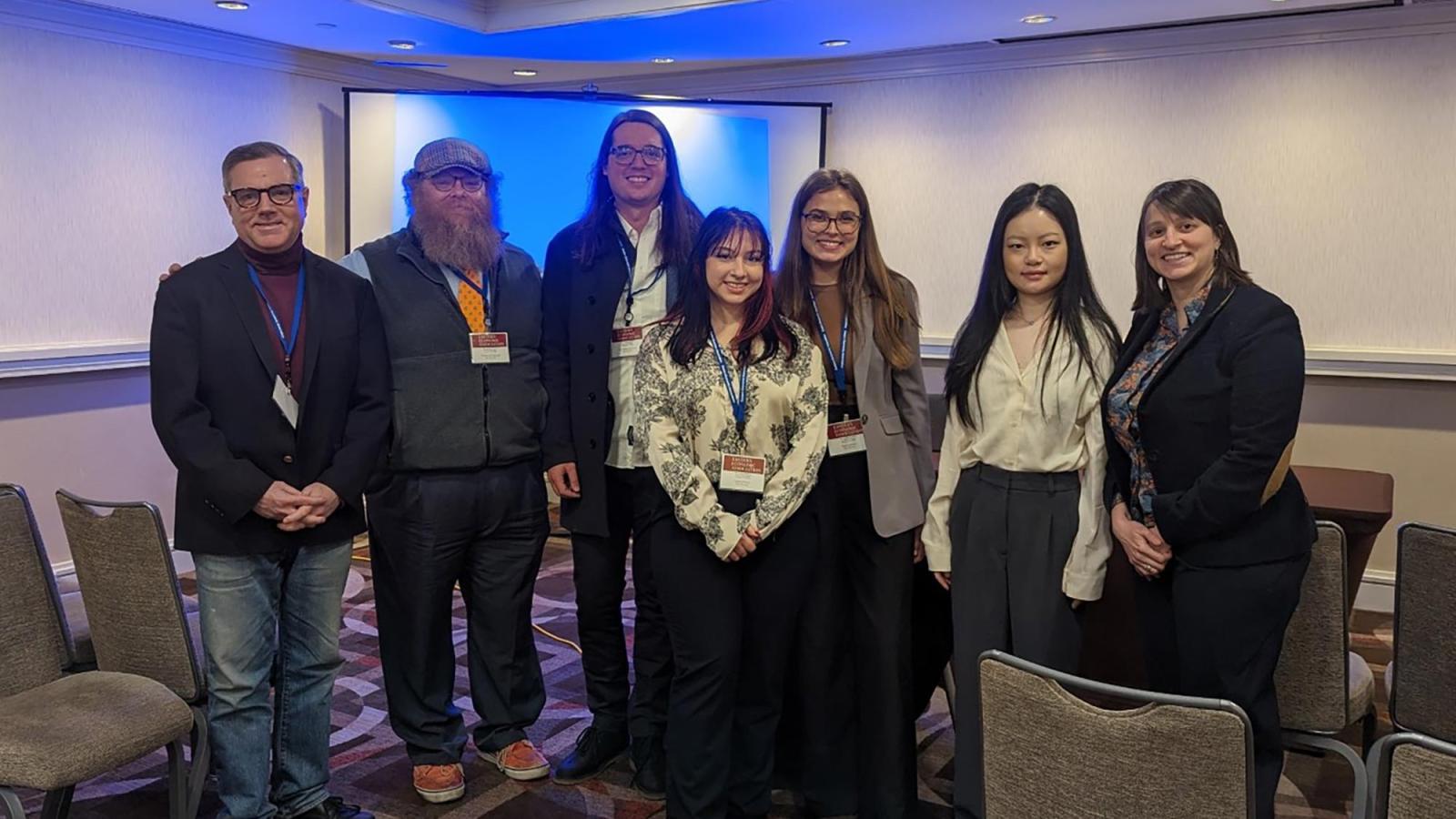
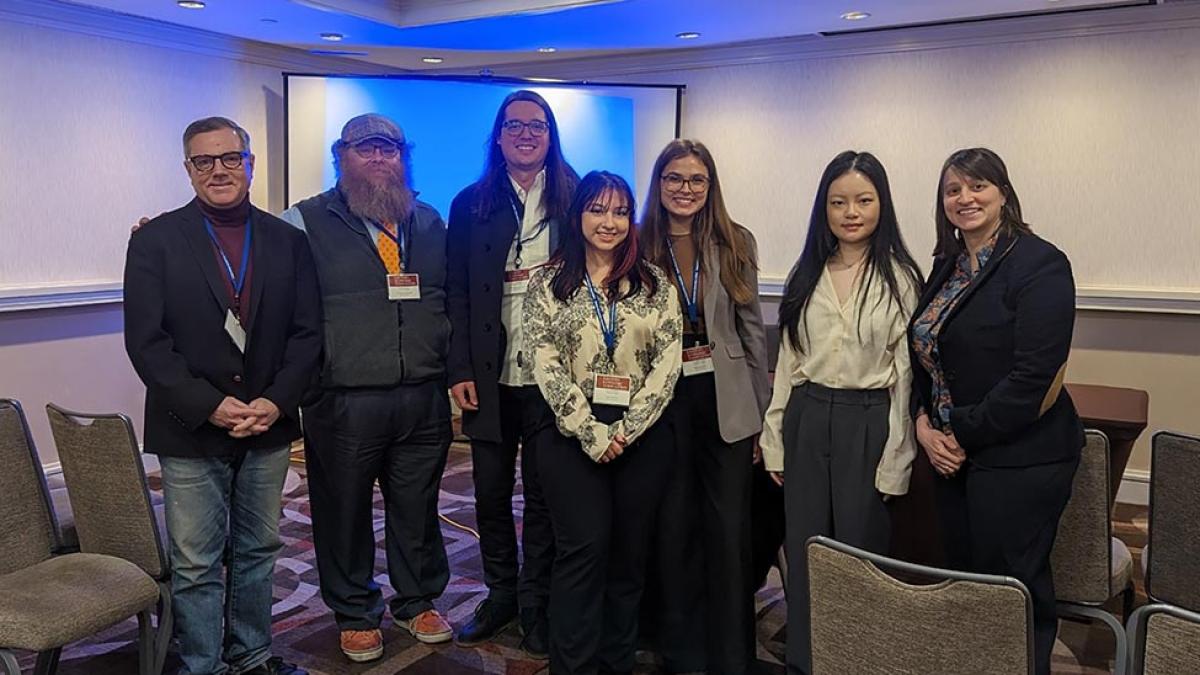
Does an individual’s willingness to take risks when it comes to general life decisions impact whether they decide to have children?
This is the question that Dyson economics student Hanyu Li ’23 has set out to answer. While much academic research has studied the relationship between general risk tolerance and financial decisions, there is significantly less around risk tolerance and fertility decisions; in other words, whether a person’s overall appetite for risk affects if they decide to have children.
“This particular question is not heavily researched— people tend to study the impact of income on fertility or risk preferences on financial decisions but not risk preferences on fertility,” says Hanyu.
Collaborating with her faculty mentor, Dyson Assistant Professor of Economics Mary Kaltenberg, PhD, the duo first began to tackle this question while Hanyu was enrolled in Kaltenberg’s Economics 585: Applied Econometrics, a master’s level econometric course. Hanyu, despite being an undergraduate, excelled in the course and wished to continue her research, which she was able to do through the Office of the Provost’s Undergraduate Student-Faculty Research Award
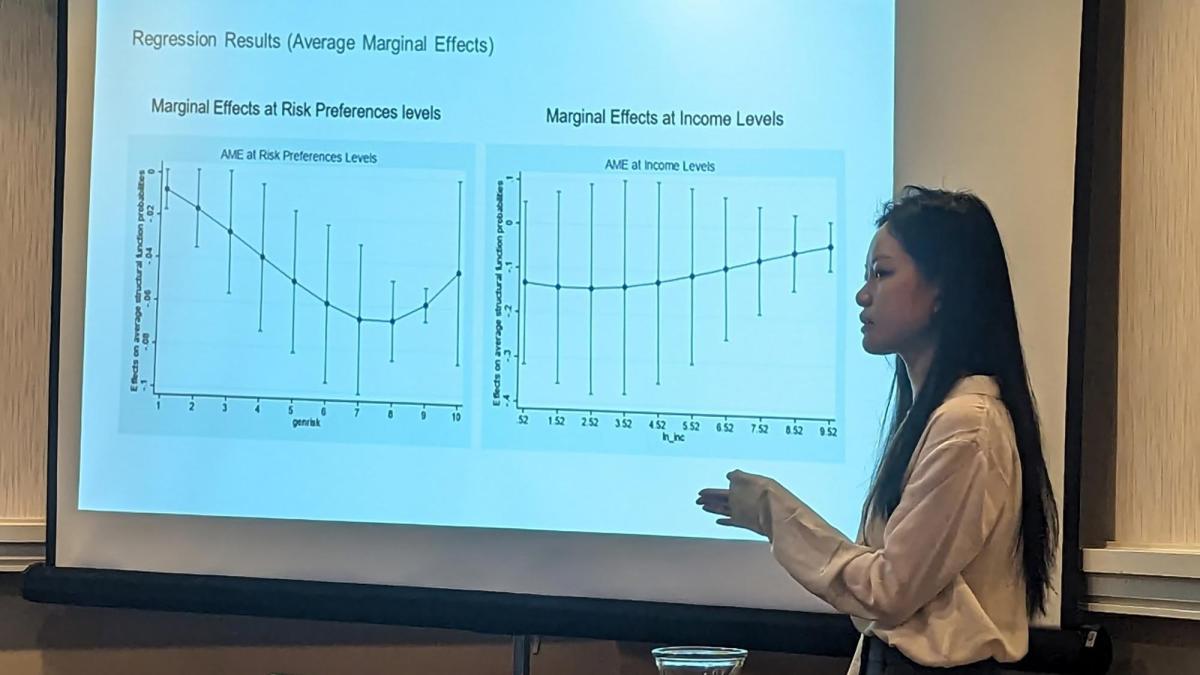
At the outset, Hanyu and Kaltenberg stressed it was important that their work examines having children within an economics framework, as opposed to analyzing through a biological or sociological lens.
“In the field of economics and fertility, having children is thought of utility maximizing behavior, like good consumption,” says Hanyu. “Utility maximizing behavior just means that you try to attain the highest level of satisfaction from your economic decisions—like buying things, or even having children. In our research, we modeled children as a financial instrument.”
From this framework, Hanyu hypothesized that having children could be more preferred amongst risk-averse individuals; reasoning that children (exhausted parents might argue this) contribute to overall utility, and act as a bulwark against other, constantly fluctuating forms of utility like vacations or fancy cookware.
“In that way, we can think of children as an insurance mechanism,” she notes. “When you have uncertainty in consumption, there will be fluctuation in your utility. Children can act as an insurance to hedge against that.”
With Kaltenberg signed on as the Principal Investigator, Hanyu began her analysis, which currently involves a literature review as well as analyzing data sets, including a very helpful data set from a German institute. Kaltenberg noted that often it can be difficult for undergraduate students to obtain strong data and was impressed with Li’s drive in seeking out and attaining this particular data set.
“Hanyu found a German individual-level panel data. What that means is that you’re able to follow people over time, and it has a lot of information about individuals that is usually hard to get access to,” said Kaltenberg. “What’s unique about the data set is that it’s really trying to understand you, your person, your level of risk. It asks a series of questions that tries to associate your level of risk tolerance in different domains. It could be that the two are still very correlated.”
Although Hanyu is still working through the data—using several advanced, graduate-level techniques to analyze and synthesize the information—she’s been able to formulate preliminary results; determining that her original hypothesis has been supported, in that married individuals who are more risk-averse would be more likely to have children.
It is really nice to have such an opportunity, especially as an undergraduate, to be exposed to a professional research environment.
“We have found that our results are consistent with the hypothesis that risk aversion will increase the probability of having children—no matter how women evaluate things, the marginal effect is about -6.5%,” says Hanyu. “A one-point increase in the scale of risk tolerance, would decrease the probability of having children by 6.5%.”
To further hone the research, Hanyu had an opportunity to present her work at the Eastern Economic Association Conference, gaining valuable insight and feedback from economists.
“EEA was the first conference that I presented at,” said Hanyu. “It is really nice to have such an opportunity, especially as an undergraduate, to be exposed to a professional research environment. I got invaluable feedback concerning model specification and how my research question could be applied to countries with different economic conditions and abortion laws.”
Hanyu and Kaltenberg are excited to continue their work—hoping to have it published in a master’s level journal, contributing to the academic literature, and thinking through possible policy recommendations. They both credit the Provost’s Undergraduate Student-Faculty Research program for helping provide the time and resources necessary to conduct quality research.
“What’s been nice is that it’s been a continuation from the master’s course—having that continuity allowed her to delve deeper into the theory and research itself so that it can become publishable,” says Kaltenberg. “It’s been really great to work with Hanyu—with her particularly, because she takes a lot of initiative.”
More from Pace
“If we create technology that helps emergency care personnel make better, faster decisions, we can literally save lives.” Professor Zhan Zhang would know—he’s spent almost a decade doing research in emergency care technology. At Pace, he’s empowering ambitious young innovators to improve life through novel tech solutions.
Students in Dyson’s Industrial Media Production class put their skills to the test as they partnered with the Berkshire Theatre Group, a renowned regional theater that was staring into the abyss after the COVID-19 pandemic.
Through interdisciplinary collaboration, the School of Education and Dyson's Film and Screen Studies departments are helping a major school district in Florida tackle the challenges of today’s teacher shortage head-on.
From Data to Decisions
We interviewed Professor Janice Winch of the Management and Management Science Department to discuss her 29-year career at Pace University. We learned about her passion for management science, the unique way she ended up at the Lubin School of Business, and why she feels it's important to be an advisor to on-campus student organizations.
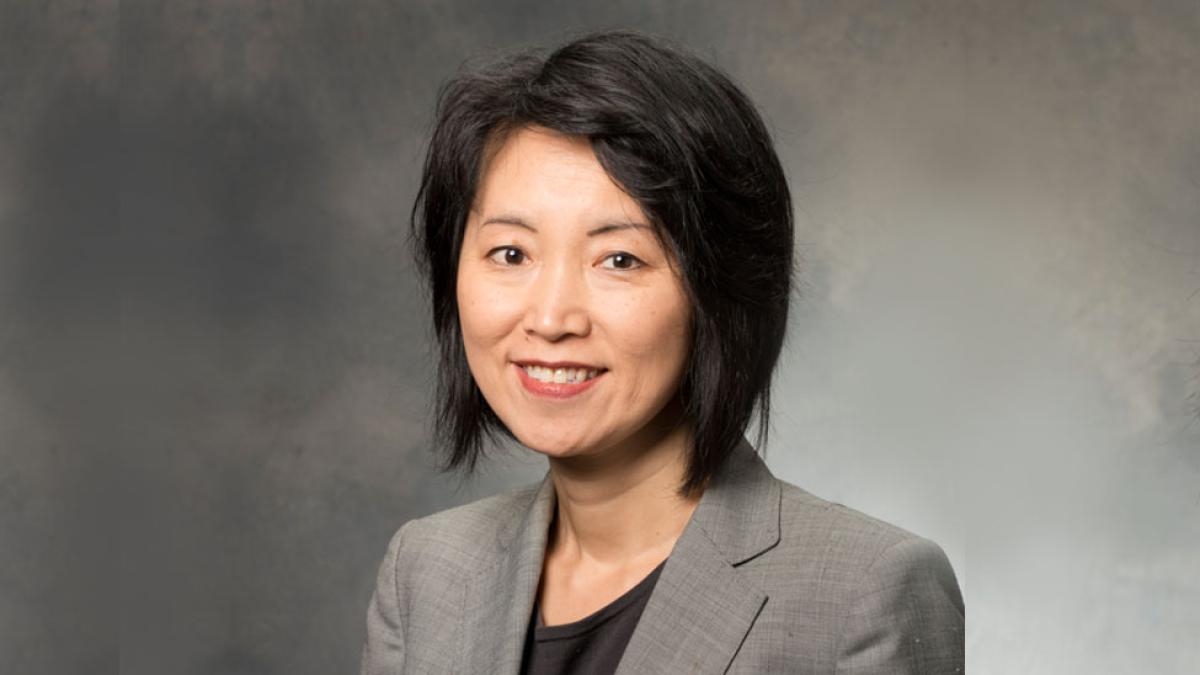
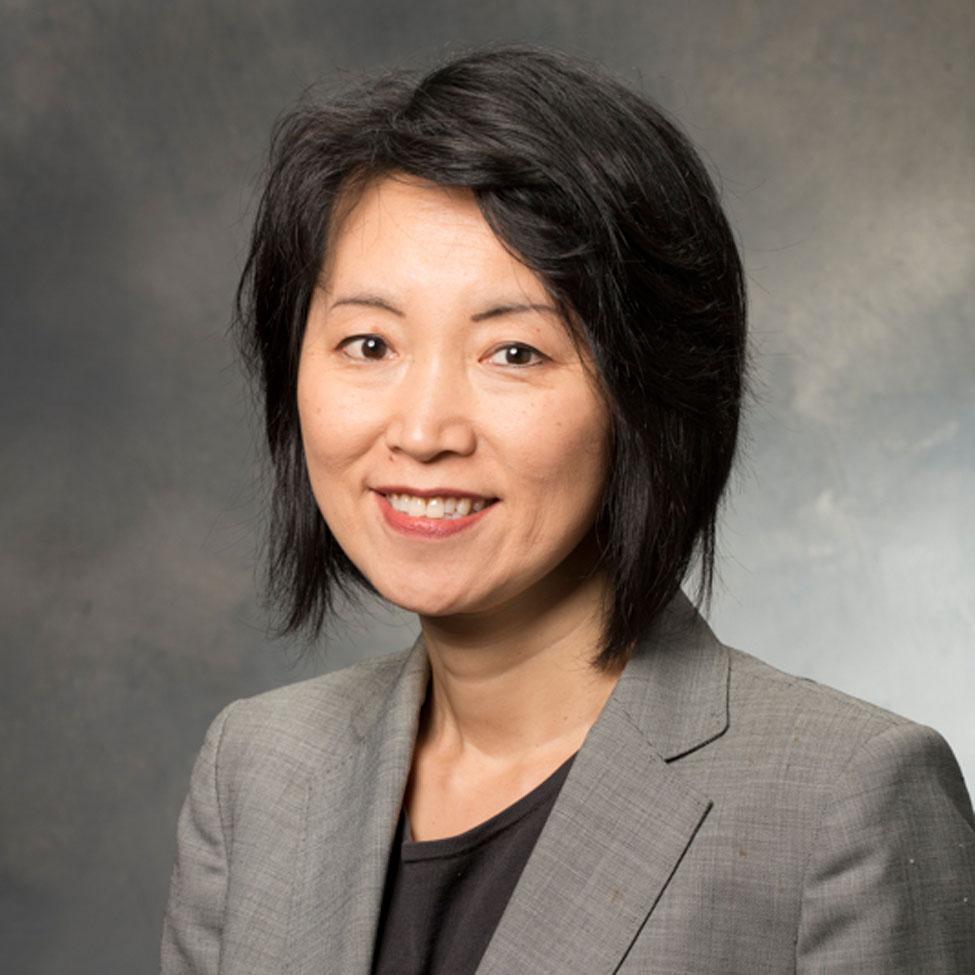
Janice Winch
Management and Management Science Department
We sat down for an interview with Professor Janice Winch, PhD of the Management and Management Science Department to discuss her 29-year career at Pace University. We learned about her passion for management science, the unique way she ended up at the Lubin School of Business, and why she feels it's important to be an advisor to on-campus student organizations.
Why Management Science?
Management Science, overlapping with business analytics, involves using analytical tools to make better decisions. In every industry, there is a huge demand for graduates who can transform data into insights then to decisions. I enjoy giving students tools to make themselves marketable in the job market and valuable in their organizations.
In every industry, there is a huge demand for graduates who can transform data into insights then to decisions. I enjoy giving students tools to make themselves marketable in the job market and valuable in their organizations.
Why the Lubin School of Business and Pace University?
I became interested in teaching at Pace University because I was impressed by a group of Lubin management science students who happened to attend a seminar at Rutgers University, where I was pursuing my PhD at the time. They were only undergraduate students but were so articulate and professional. After all those years, Lubin students continue to impress me with their drive and work ethic.
What are your research interests/areas?
My research area is in predictive analytics and optimization with applications in logistics and supply chain management. Since teaching is my passion, I am also interested in pedagogical research.
Why is it important to advance research in these areas?
Using data and decision models help organizations save money, make operations more efficient, and improve their bottom line.
What do students learn in your classroom?
They learn to use popular analytical tools such as Excel, R, and Python. They participate in data analysis competitions and work on projects that allow them to build predictive models and simulation models with real-world data. Examples include pricing of Airbnb, estimating customer lifetime value, pricing options, project scheduling, and investment decisions.
In addition, Professor Vishal Lala, PhD and I run the 20-hour Lubin Analytics Boot Camp where students become familiar with in-demand technologies such as Google Analytics, Tableau, Python, and R.
Discuss your professional path and its impact on how you teach and what you teach.
My PhD program included a lot of theory and difficult math, but not much application. In my teaching, I emphasize the hands-on practical skills, not just the theories and concepts. Based on many books I read about effective learning, I build in a lot of practice and active learning.
You also serve as the faculty advisor for INFORMS. Why is it important to you to support and advise this student organization?
INFORMS gives students who are studying or interested in analytics exposure to workshops and professionals in the field. With students running workshops on R, Python, and Tableau, student leaders can reinforce their knowledge. Students typically are pulled in multiple directions with their classes, part-time jobs, and internships. As the experienced adult in the room, it is important for me to help them direct their efforts in the most efficient way. I feel I am contributing to the student development outside of the classes I teach. I also enjoy interacting with the students on a more personal level.
What are some challenges you had to overcome to get to where you are today?
I was extremely quiet and shy as a child. When I first started teaching, I compensated for my shyness by overpreparing and planning everything I was going to say, but I always enjoyed being in front of the class, even in those early years. My challenges in the last 10 years or so were learning a variety of newer analytical tools that did not exist when I was a student. It was a huge time investment.
Of which triumph are you most proud?
I am proud of my Pace University Kenan Award for Teaching Excellence. I am also proud of our BBA in Business Analytics program that I revamped multiple times to respond to shifting market trends.
What is the single most important lesson you'd like to impart to your students?
Think of the challenges you face as an opportunity to learn and grow. Regardless of the outcome, you will be a wiser and smarter person, but be judicious about choosing challenges to take on—there is only so much time in the day, and you need your sleep.
What does #LubinLife mean to you?
It means opportunities for Lubin students to develop inside the classroom and out—preparing them to be well-positioned for their full-time job or graduate program.
Courses Professor Winch Teaches:
- MGT 226: Business Analytics
- MGT 251: Introduction to Programming for Data Science
- MGT 350: Operations and Supply Chain Management
- MGT 353: Predictive Analytics
- MGT 356: Simulation and Risk Analysis
- MBA 810: Business Analytics and Statistics
- MBA 812: Managing Operations and Projects
Pace University Professor Receives National Science Foundation Grant to Develop Touchless Smart Glasses
Pace University Seidenberg School of CSIS Professor Zhan Zhang, PhD, recently received a $499,966 grant from the National Science Foundation (NSF) to develop touchless smart glasses that will allow emergency care professionals to collect data, communicate with other specialists, and pull up medical protocol checklists with a gesture of the head or through voice controls. They’ll no longer need to take their hands—or their eyes—off the patient or risk transferring germs to and from a computer keyboard.
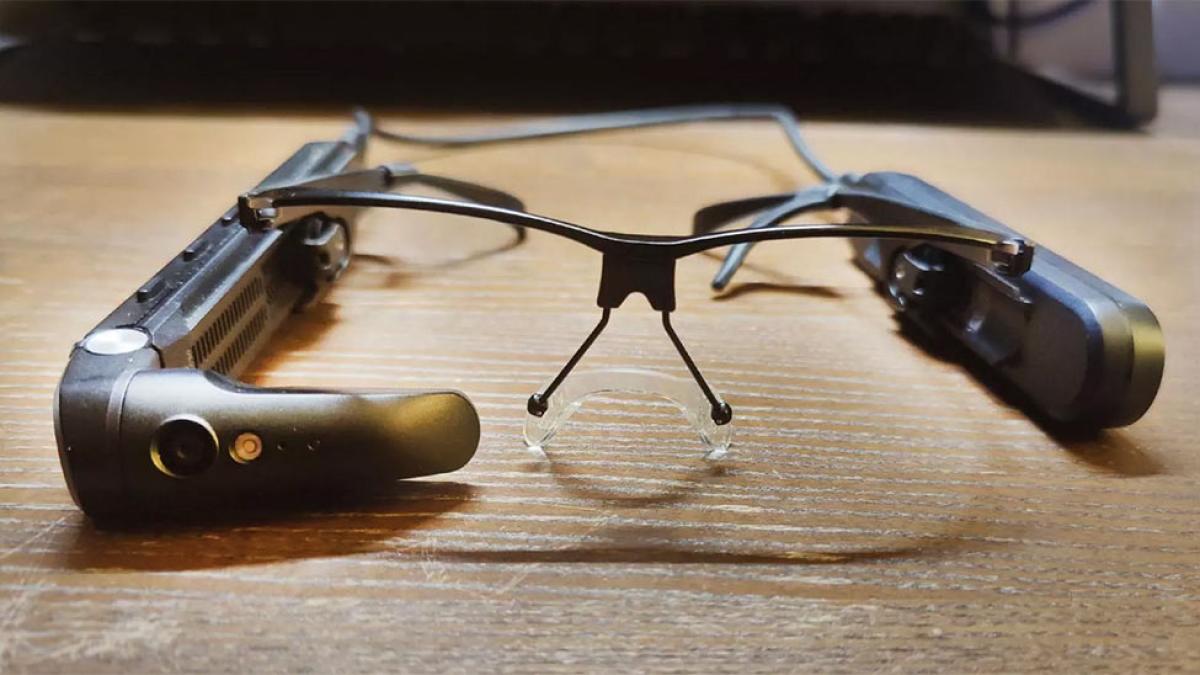
Grant to Seidenberg School of CSIS professor allows technology to be created that helps emergency care personnel make better decisions faster.
Pace University Seidenberg School of CSIS Professor Zhan Zhang, PhD, recently received a $499,966 grant from the National Science Foundation (NSF) to develop touchless smart glasses that will allow emergency care professionals to collect data, communicate with other specialists, and pull up medical protocol checklists with a gesture of the head or through voice controls. They’ll no longer need to take their hands—or their eyes—off the patient or risk transferring germs to and from a computer keyboard.
Humans have limited capacity for processing information and recognizing critical events, which can lead to errors when this capacity is exceeded. In safety-critical areas such as medicine, such errors can lead to serious consequences, especially in the many cases where these errors might be preventable. A common cause of medical errors is when health workers lack situational awareness, knowing what is going on within an environment and predicting what is likely to happen next, and make mistakes based on this lack of awareness. The overarching goal of this research is to determine how to support fast-response medical teams’ awareness of context-specific information and activities while accounting for their limited capacity in processing information and ability to interact with handheld computing devices while doing their job.
“If we create technology that helps emergency care personnel make better decisions faster, we can literally save lives.” said Professor Zhan Zhang, PhD
The project is structured around three main aims. The first is to deeply understand the cognitive needs of care providers during time-critical medical events; this will be accomplished by analyzing simulation videos, eye-tracking data, and artifacts, along with observational field studies and interviews with EMS workers. The second is to design and develop hands-free cognitive aids for fast-response medical teams, through a series of participatory design workshops and usability evaluation activities grounded in socio-technical models of health information technology implementation. The third is to conduct summative assessment of a functional prototype through deploying it in training simulations, measuring task performance and patient outcomes along with effects on workers’ situational awareness and cognitive load.
Together, the research will produce scientific knowledge and design implications related to situational awareness, hands-free technologies, and human computer interaction. The project will also promote interdisciplinary education and research through involving a diverse group of high school, undergraduate, and graduate students, while providing the basis for developing a rich outreach program to medical workers and health technology industry partners.
“Pace University has always been at the forefront of creating opportunity,” said Pace University President Marvin Krislov. “Investing in faculty research that contributes to knowledge creation, enables distinctive academic offerings, and provides opportunities for research collaboration with our students. We are grateful for all the hard-work and dedication of Professor Zhan Zhang. The research will provide cutting-edge technology for emergency care personnel to help them better take care of patients, it’s remarkable.”
“The Seidenberg school is an ideal incubator for Professor Zhang’s world-class work in wearable technologies for healthcare,” said Jonathan Hill, Dean of the Seidenberg School of Computer Science, and Information Systems at Pace University.
“The creative problem-solving and entrepreneurial environment that Seidenberg provides is designed to empower brilliant minds like Professor Zhang’s, and to match them with bright, hard-working students who are driven to support that type of research. We are very proud of Zhan, and, like many people, look forward to his ongoing career success.”
Professor Zhang’s work has earned him a few incredible distinctions: In Fall 2021, he made Pace history by earning grants from both the National Institutes of Health (NIH) and the National Science Foundation (NSF). In February 2023, he made history at Pace again, after being awarded nearly $500,000 through the NSF's Faculty Early Career Development (CAREER) Program, the most prestigious award for junior faculty across the US from a Federal agency.
About Pace University
Since 1906, Pace University has educated thinking professionals by providing high quality education for the professions on a firm base of liberal learning amid the advantages of the New York metropolitan area. A private university, Pace has campuses in New York City and Westchester County, New York, enrolling nearly 13,000 students in bachelor’s, master’s, and doctoral programs in its Dyson College of Arts and Sciences, Lubin School of Business, College of Health Professions, School of Education, the Elisabeth Haub School of Law, and Seidenberg School of Computer Science and Information Systems.
About the Seidenberg School of Computer Science and Information Systems at Pace University
At Pace University’s Seidenberg School of Computer Science and Information Systems, students experience a best-of-breed technology education at one of the first comprehensive schools of computing in the nation. Strategically located in the heart of NYC’s tech scene, the Seidenberg School places students on the doorstep of New York’s most promising companies, whether they are established tech giants or exciting new start-ups. The school offers a range of online and in-person masters programs, including an online Master of Science in Computer Science degree. Through partnerships with leading corporations, banks, federal agencies, and global entities, the school’s curricula and programs are designed to give students the latest in computer science theory and invaluable hands-on practice to ground it. The faculty includes numerous cybersecurity experts who operate labs and centers providing students with practical experience and connections that lead to impressive internships and jobs.
2023 Oscars Facts: 95th Academy Awards By The Numbers
Pace University’s Dyson Professor Michelle M. Pulaski Behling was featured in WalletHub's recent article about Oscars By The Numbers.
